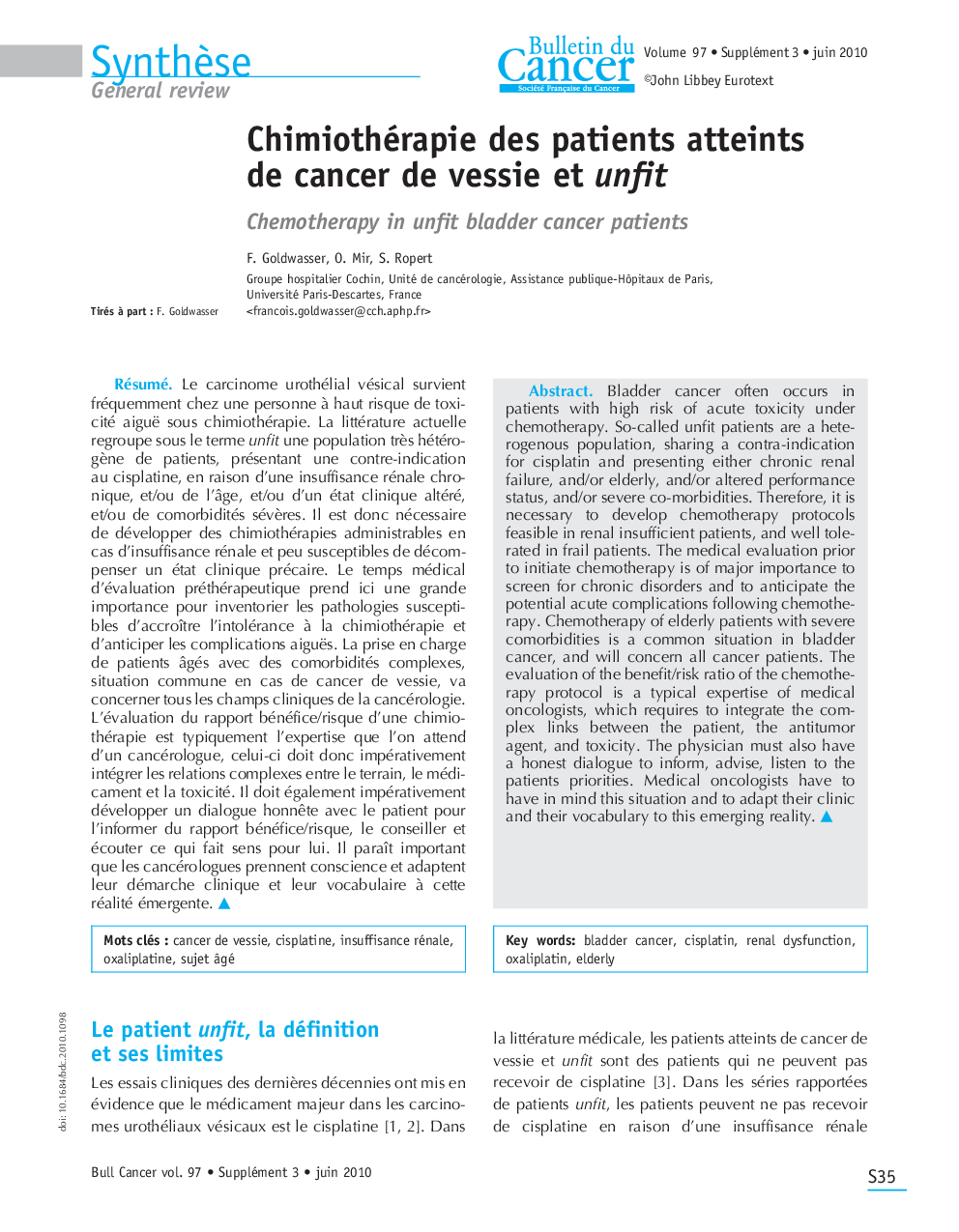| Article ID | Journal | Published Year | Pages | File Type |
|---|---|---|---|---|
| 3979352 | Bulletin du Cancer | 2010 | 7 Pages |
Abstract
Bladder cancer often occurs in patients with high risk of acute toxicity under chemotherapy. So-called unfit patients are a heterogenous population, sharing a contra-indication for cisplatin and presenting either chronic renal failure, and/or elderly, and/or altered performance status, and/or severe co-morbidities. Therefore, it is necessary to develop chemotherapy protocols feasible in renal insufficient patients, and well tolerated in frail patients. The medical evaluation prior to initiate chemotherapy is of major importance to screen for chronic disorders and to anticipate the potential acute complications following chemotherapy. Chemotherapy of elderly patients with severe comorbidities is a common situation in bladder cancer, and will concern all cancer patients. The evaluation of the benefit/risk ratio of the chemotherapy protocol is a typical expertise of medical oncologists, which requires to integrate the complex links between the patient, the antitumor agent, and toxicity. The physician must also have a honest dialogue to inform, advise, listen to the patients priorities. Medical oncologists have to have in mind this situation and to adapt their clinic and their vocabulary to this emerging reality.
Keywords
Related Topics
Health Sciences
Medicine and Dentistry
Oncology
Authors
Goldwasser F., Mir O., Ropert S.,
